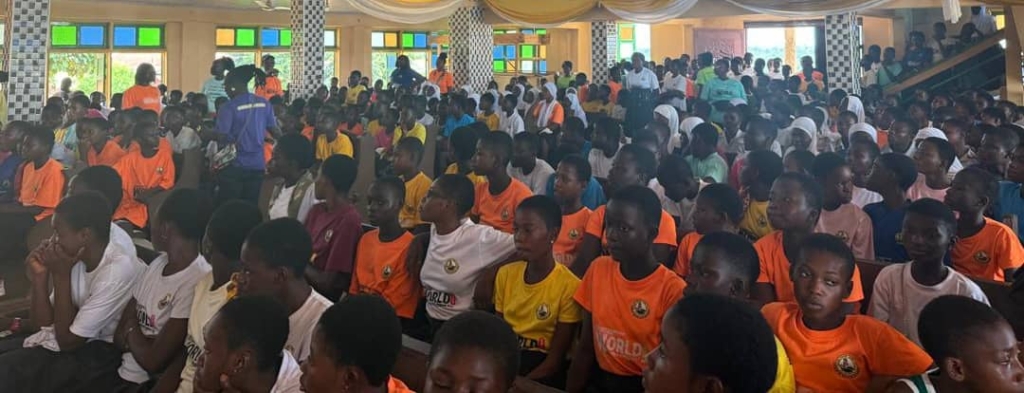Observed every May 28, Menstrual Hygiene Day 2025 urges global action to end stigma and ensure access to safe, affordable menstrual care for women and girls who menstruate.
The theme for 2025 Menstrual Hygiene Day, “Together for a Period Friendly World,” advocates for collective action to ensure menstruation does not limit access to education, health, or opportunities. It emphasises breaking the stigma and taboos surrounding menstruation.
As part of the activities to mark the day, the Municipal Chief Executive (MCE) for Tano South, Emmanuel Kwame Frimpong, on Wednesday collaborated with the Ghana Education Service to sensitise basic school girls in Techimantia in the Ahafo region.
In his remarks, Mr. Frimpong indicated that menstruation is part of the development of girls and women, which makes them unique among humans, and it is not forbidden to experience the cycle every month.
He noted that when the menstrual cycle of girls is properly managed both at home and in school, it plays a critical role in maintaining the quality of health conditions for girls.
The MCE stated that effective management of menstruation among girls also improves enrollment and attendance, saying that “school dropouts will be addressed.”
Mr. Frimpong reaffirmed the government’s commitment to supporting girl-child education and ensuring that no girl is left behind due to a lack of menstrual hygiene materials.
The MCE pledged his continuous support for initiatives that promote the well-being and education of young girls in the municipality, noting that “together we can make our girl-child great and strong.”
He encouraged the girls to take their education seriously, emphasising that knowledge and discipline are key to unlocking opportunities for a better future.
The Tano South Municipal Director of Education, Agnes Amihere, said the exercise is aimed at breaking taboos surrounding menstruation and raising awareness of the importance of good menstrual hygiene management worldwide.
It also highlighted menstrual hygiene to empower women and girls of the world so that they can unlock their economic and educational opportunities.
She indicated that the menstrual period can last between two and seven days, but it usually lasts for about five days, and that the bleeding tends to be heaviest in the first days.
“When your period is at its heaviest, the blood will be red. On lighter days, it may be pink or brown,” Mrs. Amihere stated.
Menstrual hygiene management includes access to products to absorb the flow of blood during menstruation, privacy to change the materials, and access to facilities to dispose of used menstrual management materials.
The Director implored the girls to remain focused on their academic journey and to avoid deviant behaviours that could hinder their progress.
In line with the government’s Free Sanitary Pad Initiative, Mr. Frimpong presented boxes of sanitary pads to be distributed to the girls.
DISCLAIMER: The Views, Comments, Opinions, Contributions and Statements made by Readers and Contributors on this platform do not necessarily represent the views or policy of Multimedia Group Limited.
DISCLAIMER: The Views, Comments, Opinions, Contributions and Statements made by Readers and Contributors on this platform do not necessarily represent the views or policy of Multimedia Group Limited.

